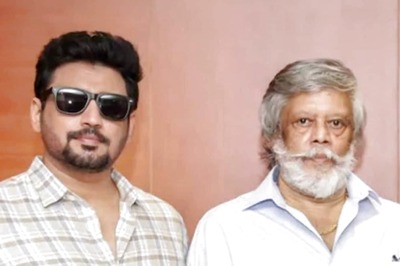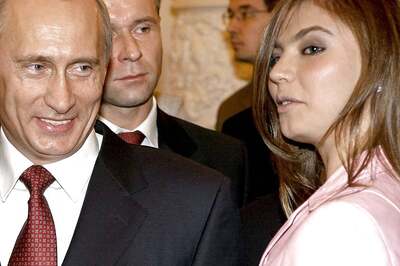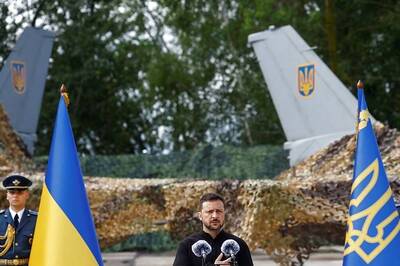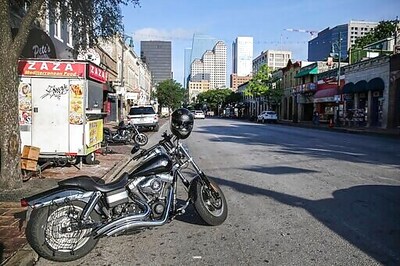As Bengaluru, Mysuru Gear Up for Elections, Civic Issues Could be the Turf on Which Battle is Fought

views
Bengaluru: Bengaluru, the capital of Karnataka, is home to the headquarters of Infosys and Wipro, two of the biggest IT companies in the domain of market capitalisation in India. No wonder then that the city is often referred to as the India’s Silicon Valley of India.
Located about 150km southwest of Bengaluru is Mysuru, known largely for its princely heritage. The city also served as the capital of the old kingdom of Mysore that comprised of the southern sections of the Deccan plateau, parts of present day Karnataka and Tamil Nadu, and was ruled by the Wodeyar family.
Electorally, the city of Bangalore votes in four separate constituencies—Central, North, South and Rural.
According to the 2011 census, the four Bangalore constituencies constitute about 17% of Karnataka’s population where 100% of the Bangalore South constituency is urban; Bangalore Central and North have over 90% urban population and Bangalore Rural has a 50:50 urban-rural divide.
The city of Mysuru votes as one constituency that comprises Madikeri and Virajpet from Kodagu district, and Piriyapatna, Hunsur, Chamundeshwari, Krishnaraja, Chamaraja and Narasimharaja from Mysore district. This constituency also has a 50:50 urban-rural divide.
On April 18, all the five constituencies are going to the polls along with nine other constituencies in Karnataka.
So, what are the issues that form the crux of the decision-making process among voters and how have the voters chosen their representatives in the past?
The common narrative is that development in Karnataka is lopsided and that there exists a significant regional imbalance because the focus is largely on cities like Bengaluru. On comparing district-wise per capita incomes, the reality about inequalities in development comes to light.
According to the Economic Survey of Karnataka 2018-19, the Bangalore urban district ranks the highest in terms of per capita income (PCI). The PCI is Rs. 3,70,003. Bangalore rural ranks 5th with PCI of 1,59,693. Mysuru ranks 17th and Kodagu ranks 18th on the list of 30 with PCIs of Rs. 1,12,009 and 1,11,0341, respectively. The difference between PCI in Bangalore urban and Dakshina Kannada that stands second on the list is 25%.
Other predominantly agriculture-oriented districts such as Chikmagalur and Uttara Kannada rank 4th and 13th on the list.
But this doesn’t mean that high-income cities are free from troubles. The most prominent woe among urban Bangaloreans is the scarcity of water. Not to mention that rural sections are also plagued by this issue.
A total 156 of Karnataka’s 176 taluks were declared drought-hit in an assessment conducted by a Cabinet sub-committee last year. This comes after Karnataka experienced the driest October in 45 years when the state received only 28mm rainfall as against the expectation of 128mm.
For both Bengaluru and Mysuru, tales of low rainfall and ensuing drought-like conditions signify a drinking water crisis. According to recent reports, both the places are staring at an imminent drinking water crisis. Additionally, amid issues concerning drought, there are also areas like Madikeri, part of the Mysore parliamentary constituency, that recently bore the brunt of heavy rainfall, flooding and landslides.
Other civic issues such as the infrastructure woes concerning the state of roads and sanitation facilitates are also bound to have an impact on electoral preferences.
The Voting Pattern
Currently, the JD(S) and the Congress are in an alliance in Karnataka, and according to the seat-sharing agreement, JD(S) is contesting from Hassan, Mandya, Shimoga, Udupi Chikmagalur, Uttara Kannada, Bijapur and Tumkur, and the Congress is contesting from the remaining 21.
The Bangalore North constituency has voted the BJP to power in the last three elections. Before this, Congress’ C.K Jaffer Sharief won the seat seven times since the 1977 elections.
Currently, the North seat is held by BJP’s D.V. Sadananda Gowda who is facing stiff competition from Congress’ Krishna Byregowda, the current minister of rural development, law and parliamentary affairs in HD Kumaraswamy’s cabinet.
The other prominent leader in the running is BJP’s Tejasvi Surya, who is contesting from Bangalore South. The seat has been vacant since November 2018 due to the death of BJP MP Ananth Kumar.
It is of note that the seat was held by Kumar since 1996. Kumar also wrestled a win against Infosys cofounder Nandan Nilekani in 2014 when Nilekani made an electoral debut, contesting on a Congress ticket.
The Bangalore Rural and Bangalore Central constituencies were created in 2008 following the delimitation exercise. Since the time of creation, the Central seat has been held by P.C. Mohan, a member of the BJP while the Rural seat was held by Kumaraswamy, the current chief minister, between 2009-2014 and is now held by Congress’ D K Suresh.
Historically, Mysuru has also been a Congress stronghold. The party won all but four out of the 15 elections held since 1952.
Of the 15, four were won by Srikantadatta Narasimharaja Wadiyar, a member of the erstwhile royal family of the Kingdom of Mysore, who contested on an INC ticket.
For the 2019 elections, the prominent contestants are BJP’s Prathap Simha, the current MP and Congress’s C.H. Vijayashankar. It is noteworthy that Vijayashankar had won a Lok Sabha seat on a BJP ticket earlier.




















Comments
0 comment